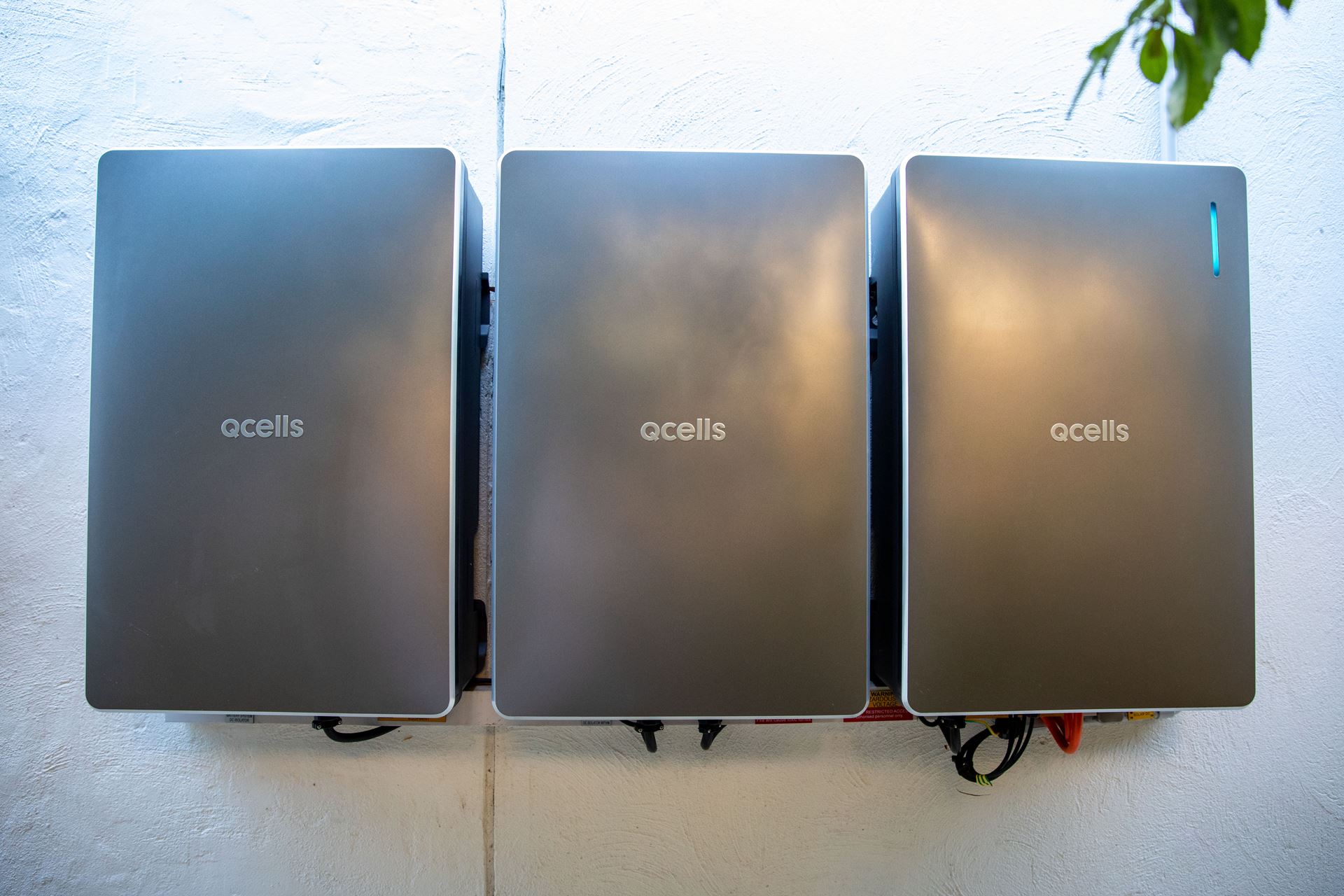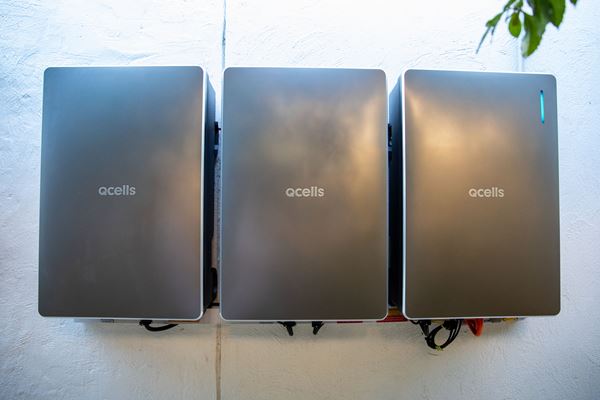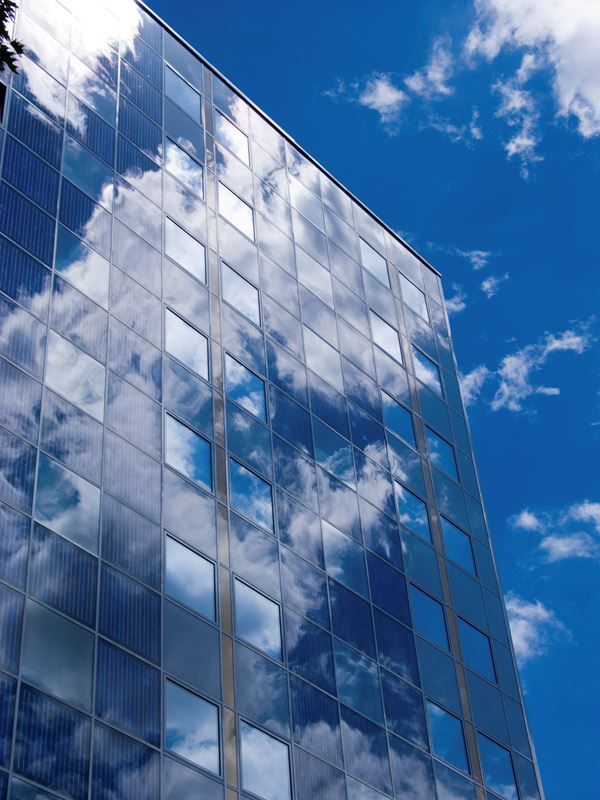THE SMART ENERGY EXPRESS/ JUNE-JULY 2023
Electrifying Your Newsfeed
Written by Kerry Mullany
Randwick City Council Offer Locals Up To $1,500 in Solar Rebates
Randwick City Council are implementing sustainable incentives for local residents with up to $1,500 worth of rebates up for grabs when making the switch to clean energy.
Helping offset the cost of rooftop panels and solar batteries will be a huge financial bonus for the Randwick LGA, let alone the savings a solar system will create for years to come.
As a certified Clean Energy Council (CEC) approved solar retailer, Smart Energy are
“thrilled along with Randwick City Council to be providing the local Randwick LGA community with a more accessible and sustainable energy solution”
Smart Energy's Head of Energy Storage, Joel Power.
Just like the longevity of renewable energy, our Smart Care package offers our customers ongoing support and long-term product warranties to sweeten the switch to clean energy.
Thank you to Randwick Today for sharing this exciting news*. As solar becomes a standard feature of Australian homes, taking advantage of these rebates now is a wise decision.
Our advice to Randwick City locals is to get amongst it whilst rebates are available!
Dial To Discover Your Eligibility: 1300 133 055
*To read the full article see link by scrolling to bottom of this page

Solar Batteries are the next logical step...
...to reducing household energy bills, increasing solar system efficiency and continuing to stride towards a greener future.
Joel Power, Head of Energy Storage at Smart Energy speaks to Energy Storage News about the increasing demand and the numerous benefits consumers are gaining by upgrading their solar systems with a battery.
Battery storage systems are revolutionising the way energy is consumed and managed in residential settings.
Benefits included reduced reliance on the grid, increased energy independence, and the ability to store excess solar energy for use during peak demand or grid outages.
With a strong push from the government, there are a number of financial incentives supporting Australians in making the switch to renewable power. Affordable energy solutions are vital in the economic climate we are facing. Especially with energy prices rising up to 46 percent for some residents, looming ahead in the new financial year.


Tough News To Swallow For AGL & Origin Customers
Talking of price rises…
By now you’ve probably heard the latest announcement from the Australian Energy Regulator (AER) detailing energy price increases. It’s easy to assume ‘this won’t affect me’ because of course such daunting news that your bills could increase $565+ per annum, is hard to digest.
Though for customers of AGL & Origin, it’s time to accept the grim reality, as they confirm that inflation of wholesale prices will be passed onto their loyal customers on variable rate contracts.
Ranging from 21 per cent to almost 30 per cent, changes will also impact small businesses across the country, who can expect bills to increase by as much as $1,133 per year.
The advice for consumers from AER chair Clare Savage is “to shop around for a better deal.”

Our advice: move away from old school energy production, avoid further predicted energy price increases, and stop effectively ‘renting’ energy when the resources to produce your own are within reach.

Ubiquitous Energy Share Innovative Transparent Solar Window
Groundbreaking technology has emerged from US company Ubiquitous Energy, who are painting a translucent image of the future of solar; that quite frankly - is blowing our minds!
On behalf of Ubiquitous Energy, researchers from the Massachusetts Institute of Technology (MIT) and Michigan State University (MSU), have engineered a thin photovoltaic coating that turns windows into transparent solar panels providing an alternative method of harvesting sun power beyond rooftop panels. The transparent solar panel works by absorbing and converting the ultraviolet and near-infrared light that passes through the window into electricity. Wiring in the window frame will make UE Power, as it is known, "visibly indistinguishable" from traditional windows, uncompromising the aesthetic of any building.
Ubiquitous Energy’s innovative plans don’t stop at windows. In fact with UE Power, the company’s mission is to turn almost any hard surface into a photovoltaic panel.
Deploying UE Power on surfaces intimately close to the place the power is needed has the potential to change the way we obtain and use solar power as well as improve efficiency on a larger scale. For example solar panel farms require lots of space, and are usually located a fair distance from the demand of power. If you could source bulk solar energy without the limitation of roof space, you could supply built up areas with clean energy, fast and effectively.
If the coating were to become as standard as low-emissivity (or low-E) coatings that windows are now, the company’s modelling shows that in 30 years broad adoption could offset 10 percent of global carbon emissions.
However the transparent panels are only half as efficient as rooftop solar panels. Ubiquitous Energy estimates the windows would provide about 30 percent of a building's electricity needs, depending on factors such as building size, geographical location, elevation and tree cover. They imagine this tech to be used in conjunction with rooftop solar panels to reduce the building's reliance on the electrical grid.
Whilst this news is exciting, execution on a mass scale is still a long way off and rooftop solar is and will still be a significant player in lowering emissions globally. Not to mention a more cost-effective and efficient solution for homeowners.

Are you energy bills set to increase come July this year?
Perhaps it's time for a Solar Health Check of your current system. Find out how much a solar battery could save you on your energy bills.
Read the full article here:
- Randwick Today share council rebates
- Energy Storage News share the rise of battery storage with Joel Power
- News.com.au confirm energy price increases for two major energy retailers
- Dezeen share outstanding solar technology from Ubiquitous Energy